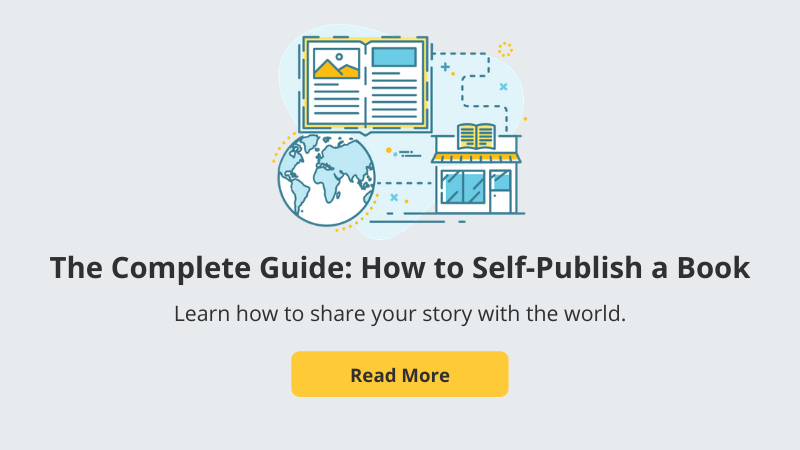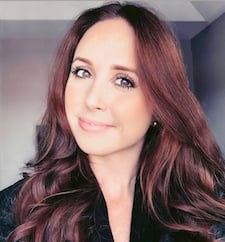Our world needs memoirs.
It needs individuals who are willing to share the honest reality of who they are and the things they’ve experienced. When someone chooses to read a memoir, it means they’re searching for something. They’re searching for understanding, to gain perspective or insight, and they’re hoping to find something within your story that they can resonate with—perhaps something that gives them hope.
Memoirs are a powerful thing! They have the ability to meet someone right where they are and provide them with a sense of connection, companionship, and even healing.
Do you have a story that the world needs to hear?
If you're reading this, you probably do.
It’s important that writers have an accurate understanding of what writing a memoir entails, because there can be misconceptions about the process. Before you commit to writing your memoir, there are some things you should know.
Don’t wait for writing to feel good.
We’ve all heard the saying, “Writing a memoir can be so cathartic!” But I’m here to tell you, do not write a memoir if catharsis is what you’re looking for.
For many writers, including myself, writing a memoir was NOT cathartic.
There are a couple of reasons why, the main one being that talking openly about your past experiences is one thing; writing about them is another.
You may be capable of talking about your experiences all day long without experiencing negative emotions, but writing about those experiences is completely different. In order to tell your story accurately, you must completely immerse yourself in that time and that particular experience. You’ll likely spend hundreds of hours reliving those experiences. It may sound doable, but it can be very challenging day in and day out. It’s important that writers don’t go into the with false hope of finding healing through writing, because that may not be the case for you. Or, maybe it will be. You'll never know until you try.
View this post on InstagramA post shared by Jessica Lynn Jacquez (@jessicalynnjacquez) on
Be ready for criticism.
There will be MANY people who believe in you and support your book, but there may be some that don’t. This seems like common knowledge, but it’s important to remember. Memoirs give readers a look into your deeply personal memories, and telling your stories makes you vulnerable.
After countless hours spent pouring your heart and soul into your manuscript, it almost seems cruel that there would be those who don’t appreciate or support it. But there will be a day when you experience that.
It may be a close relative or friend who doesn’t like the way you portrayed a particular person in your story. If you find that there are things in your book that may hurt certain individuals in your life, ask yourself if you told your story as accurately as possible. Assuming you have, that’s something for you to work out with that individual.
It’s also important to remember that this will all be new to you. Of course, it’ll be uncomfortable to hear anything but positive remarks about your book, but look at it as if you’re gaining new muscle. When you just start working out at the gym—it hurts! But over time, you develop more strength and what used to be painful isn’t anymore. You have to give yourself time to grow and become stronger.
 The world needs your honesty.
The world needs your honesty.
If you make the decision to write your memoir, go into it with the intention of being as transparent as possible. Write about the things that make you cringe.
The parts that make you think, this is too embarrassing, or, do readers really need to know this about me? Those are precisely the things you should write about.
You need to remember why you want to write a memoir in the first place. Share your story because you know it has the power to change lives, shift perspectives and lighten the burden of shame others may be experiencing.
In order to do that, you have to talk about the things that others aren’t willing to. Many people feel isolated in their struggles because they don’t have a safe place to talk about them or they don’t know anyone who can relate. Your book can provide the comfort and understanding someone is searching for.
Ernest Hemingway said it best, “Write hard and clear about what hurts.”
Getting Started
Starting a memoir can seem daunting, and knowing where to begin can be overwhelming.
I found mind-mapping with Post-it notes to be extremely helpful and a great way to stay organized.
Write down the major events/memories you want to write about, and put them on post-its. Then, place them on a poster board in chronological order.
As you continue to remember new things, it will be easy to add them and make changes. Once you have everything down on the board, you essentially have your outline done. That’s when the writing begins!
Set Writing Goals (And Celebrate Your Accomplishments!)
Every night, set a goal for how many words you’ll write the next day. Committing to a word count the night before can help you mentally prepare for the next day.
Also, be realistic about these goals! Set yourself up for success by committing to a goal that you honestly believe you can accomplish.
Something I used to help me stay accountable was a calendar.
I printed a calendar every month and wrote what word count I was committing to each day. Then, I hung the calendar up in a place that my entire family could see. At the end of each day, I had to write my word count—whether or not I hit my goal.
Knowing that everyone would see whether I accomplished my goal or not was an extra incentive to want to get it done.
Another word to the wise...Don’t stop writing just because you’re tired.
This may sound a bit harsh, but it’s true. Push through until you hit your goal for that day. If you get tired, stand up, take a quick walk, and drink some water. Within ten minutes you’ll feel refreshed enough to jump back into it! 
Editing, however, is a different story. When you’re editing, it’s important to take multiple breaks a day—sometimes even giving yourself a few days before going back to your manuscript. It’s a fact that after you’ve read over your manuscript so many times, you begin to overlook mistakes much more. Having a few days (and in some cases a week) to rest allows you to go back to your manuscript with fresh eyes. This also makes your time more productive, since you won’t be going over mistakes you missed the last time when you were fatigued.
Lastly, be excited about every goal you hit. Every new chapter written or edited is a victory—celebrate it!
Tell your friends or your spouse when you’ve hit another milestone. Treat yourself to something small. This is hard work and you should give yourself credit for your dedication! It takes enthusiasm to start a memoir, but an incredible amount of endurance to finish one.
Cost of Publishing a Memoir
If you search the expected cost of publishing a book, you’ll get a ton of different answers.
It’s helpful to get an idea of what other people spend, but not everyone has the same goal in mind or the same vision as you.
For me, editing was my number one priority. I was willing to spend more on a great editor so that my book would sound well-written and would be indistinguishable from a traditionally published book. In the end, what I spent on writing my book was much different from the figures I found online. My advice: decide on the front end what's most important to you, and allocate your budget accordingly.
Choosing a Publishing Platform
I began researching self-publishing platforms once my first draft was complete and with the editor for its first round of edits. Once I began learning what my options were, it didn’t take long to see that self-publishing was the way I wanted to go, and that IngramSpark was the best way to do that!
After spending countless hours writing, editing, revising, and planning my book, I needed to know that it would come out perfect—and it did. It came out even better than I had expected. When I finally held my book in my hands for the first time my eyes filled with tears. I was overcome with pride in what I had created.
There is so much power in self-publishing and companies like IngramSpark have completely revolutionized the process. Gone are the days when an author’s only hope of success was to be noticed by a large traditional publishing company. With IngramSpark, writers have access to an incredible self-publishing platform that allows their vision of creating a high-quality, attention-grabbing book to become a reality. That, along with Ingram’s ability to connect your book to thousands of retailers makes it unlike anything else out there!
Marketing a Memoir: Social Media and Promo Codes
My favorite platform to advertise my book is Instagram. It’s a great way to build anticipation for your book and connect with readers and book bloggers!
Since creating my author account on Instagram, I’ve been invited to speak on several podcasts and even teach at a conference! Not to mention, I've seen book sales in several countries.
Another successful tool to use is giveaways or promos. A favorite of mine is using promo codes to drive traffic to my website. I simply go to my website settings and create a promo code for the duration and amount that I want (it’s easy, I promise). Once I have my promo, I create posts and stories advertising it.
For example, you can easily create a post advertising that any book order placed on your website will get free shipping. The following week you can advertise a promo code for an upcoming holiday such as Memorial Day, Mental Health Awareness Month, your birthday, and so on. Get creative! It’s a win-win for everyone—it gives you a reason to post about your book and drive traffic to your website, and it also gives an extra incentive to someone who perhaps may not have purchased your book otherwise.
Mistakes Made and Lessons Learned
Building an author website sounds like a lot of work, and it can be, but it’s worth it!
It’s important to have a professional website for your audience to visit. It’s an extension of you and your brand. A website is a great place for people to learn more about you, and it’s an opportunity for you to show readers what other services you offer or what other books you’ve written.
A website is also what allows you to build an email list. By the time my book was written and ready for the world to see, I was SO happy (and exhausted!) that I wasn’t too concerned with selling books myself. I let the big bookstores worry about that. As far as I was concerned I just wanted to sit back and relax for a bit and watch the books sales come in.
Well…book sales came in, but I realized that I had missed a great opportunity.
I learned two things from that mistake. First, I could have built a substantial email list with all the traffic that would have been on my site, and second, I was letting the big bookstores make most of the profit.
By having a small inventory of your books and allowing orders to be placed on your website, the profit you’ll make is significantly higher.
Now, there certainly may be those who prefer to let the bookstores and online platforms sell their books, but I find it to be very easy and well worth the small amount of effort it takes to slip a book into an envelope and drop at the post office while I’m out.
View this post on InstagramA post shared by Jessica Lynn Jacquez (@jessicalynnjacquez) on
Five Things to Remember as You Write Your Memoir
- It’s normal to question why you’re even writing a book. This may happen to you many times throughout the process; it’s happened to many great and successful authors. They didn’t give up and you shouldn’t either.
- It’s normal to question whether people will even read your book. Don’t worry, they will.
- Don’t think about writing, just write! You will easily be able to talk yourself out of writing because it’s hard. Make the commitment to write and then do it!
- Don’t rely on motivation. If you do, you will never finish. Writing a memoir isn’t easy; if it was, there would be far more people doing it. Endurance is key. Motivation will be gone and there will be days you question why you’re even writing a book. This is completely normal, and actually, you should expect to feel this way at some point. Having endurance is what will get your book written.
- Don’t get stuck in your thesaurus and editing while you write your first draft. There will be PLENTY of time to edit and improve later. By continually switching gears from writer to editor, you severely hinder and even suppress your creativity and natural flow of writing.
I could easily go on, but as long as you stick to these few things, you will be off to a great start!
Remember, the only way to get this book done is by doing it. There’s no easy way but I promise you it’s worth it! There are people who need your story!
#WhyIPublish
"I finally realized that I didn’t need to be ashamed of who I was or what I had been through. Instead, I needed to share my story because I knew it had the power to lighten the burden of shame for others and make them feel less isolated in their struggles. This is #WhyIPublish."













